This article was co-authored by Lewis Chen, DDS, FICOI, FIADFE. Dr. Lewis Chen is a licensed Dentist in both New York and New Jersey, specializing in providing high-quality oral care in the form of preventative care. He holds an Economics degree from New York University. Dr. Chen earned his doctorate at Columbia University College of Dental Medicine. He graduated top of his class with the highest honors and distinction and was nominated and inducted into the only renowned, national dental honor society, Omicron Kappa Upsilon (OKU). He then completed a comprehensive training program at the Bronx VA Medical Center and, shortly after, decided to pursue multiple practice ownership and management. Dr. Chen has acquired numerous accolades over the years, including New York Academy of Dentistry Exemplary Professional Conduct Award, Academy of General Dentistry Outstanding General Practitioner Award, American Academy of Implant Dentistry Award, and Pierre Fauchard Foundation Award.
This article has been viewed 31,002 times.
Pulling your teeth into the right alignment isn't an easy process. Everyone with braces experiences at least a few days of pain or soreness. Painkillers, soft food, and dental wax are your allies. Call your orthodontist or dentist right away if the pain is severe.
Steps
New or Tightened Braces
-
1Take painkillers. Try an over-the-counter NSAID painkiller such as ibuprofen. Check the label and take the recommended dosage for your age. Take them with a little food to go easier on your stomach.
- Take these painkillers only when necessary, and never for more than 10 days.
-
2Eat cold, soft foods. Most braces require warmth to become stiff and pull your teeth. Cold foods or drinks will lessen the strain for temporary relief. Try smoothies, yogurt, ice cream, or applesauce.[1] Choose options without toppings or chunks. Sucking on crushed ice can help, but avoid ice cubes, which are too hard.
- If you have temperature-sensitive teeth, or a less common type of braces, this may cause a different kind of pain. Warm liquids work better for some people. Don't eat warm and cold foods at the same time, as this can damage tooth enamel.
Advertisement -
3Avoid hard or sticky foods. Your teeth should recover in a few days, but until then forgo the raw vegetables. Eat meals of soup, fish, and white rice instead. Cook vegetables until soft, and choose soft fruits or applesauce. Sticky foods such as chewing gum or taffy can easily rip off braces, and should be avoided even after the pain is gone.[2]
- After the initial pain goes away, you can eat hard foods in thin slices or small pieces.
-
4Floss to remove stuck food. Pieces of food can always cause braces pain, but especially when you've just got them tightened. Use a "platypus flosser" to avoid snagging the floss on your braces.[3]
- Flossing daily will keep your teeth clean even if you don't notice stuck food. This is especially important with braces, since plaque builds up around the brackets.
-
5Massage your gums with a toothbrush. Gently move the toothbrush in circles over your sore gums.
-
6Distract yourself. Taking some time off school or work may sound fun, but you might regret it. Get outside and follow your usual routine to take your mind off the pain.
-
7Ask your orthodontist about other treatments. He may recommend a gel, paste, mouthwash, or physical barrier to lessen the pain. Many of these are available over the counter at drug stores, but your orthodontist can advise you on which product will be most effective.
Sharp Wire, Bracket, or Hook
-
1Locate the injury. If you're not sure where the injury is, run a finger or your tongue along the inside of your mouth. You should feel a sore or swollen area. Figure out which wire, bracket, or hook rubs up against this area.
-
2Cover the metal with dental wax. You can find dental wax at a drug store, or your orthodontist's office. Wash your hands, then roll a small piece of wax until it softens and forms a ball. Press the wax over the irritating piece of metal, then smooth it down with your finger or tongue. This works for sharp wires, brackets, or rubber band hooks.
- You can leave in the wax while eating. It won't hurt you if you swallow a piece.[4]
-
3Use lip balm as a temporary fix. If you don't have dental wax, a small amount of nontoxic lip balm may soothe the irritated area. Swallowing too much can give you an upset stomach, but a little in your mouth is safe. Use this only for a short time before finding some dental wax.
- Some people are allergic to para-aminobenzoic acid, occasionally found in sunscreen lip balms.[5] Call an ambulance if you feel dizzy or if your mouth swells.
-
4Bend wire or hooks to a more comfortable position. Only try this with thin, flexible wires or rubber band hooks that are poking your cheek or gums. Push them gently back against your teeth, using a clean finger or brand new pencil eraser (rubber).
- Do not pick at the wires between brackets, or at any wire that won't bend easily.
-
5Get sharp wires cut at your orthodontist. An orthodontist can clip the wire short in an instant. Most will not bill you for this, and may even let you drop in without an appointment.
- This is a non-emergency, so your orthodontist probably won't see you outside of normal business hours. Keep applying wax until the office opens.
-
6Wait for it to improve. The inside of your mouth will become tougher as the braces rub against it. As long as your braces aren't sharp or cutting into your mouth, the pain should go away on its own. This may take a few days or a few weeks.
- Dental wax can slow this down. Once the pain is less severe, try using thinner and thinner pieces of wax to get your mouth used to the braces.
-
7Inhale to dry the area. Inhale deeply, filling your mouth with air. Pull your lips outward with your fingers. This may temporarily relieve sore areas of your mouth.
- Don't try this in areas with dust, pollen, or car exhaust.
-
8Gargle with salt water. Mix a small spoonful of salt in a glass of warm water. Stir until the salt has dissolved. Swish this around your mouth several times, gargle, and spit it out. Repeat as often as needed during the first few days of pain. This will relieve pain from swelling, and help fight off infection.
- You can use a mouthwash with antimicrobial properties instead.[6] Use as instructed on the label. Do not swallow.
-
9Visit your orthodontist if pain continues. If the pain is too severe for you to function, call your orthodontist for an emergency visit. If the pain is moderate but lasts longer than a week, schedule an appointment with your orthodontist. She may discover a problem with your braces, or switch you to a less painful treatment.
Expert Q&A
-
QuestionHow can I get rid of the anxiety I have about getting braces?
 Lewis Chen, DDS, FICOI, FIADFEDr. Lewis Chen is a licensed Dentist in both New York and New Jersey, specializing in providing high-quality oral care in the form of preventative care. He holds an Economics degree from New York University. Dr. Chen earned his doctorate at Columbia University College of Dental Medicine. He graduated top of his class with the highest honors and distinction and was nominated and inducted into the only renowned, national dental honor society, Omicron Kappa Upsilon (OKU). He then completed a comprehensive training program at the Bronx VA Medical Center and, shortly after, decided to pursue multiple practice ownership and management. Dr. Chen has acquired numerous accolades over the years, including New York Academy of Dentistry Exemplary Professional Conduct Award, Academy of General Dentistry Outstanding General Practitioner Award, American Academy of Implant Dentistry Award, and Pierre Fauchard Foundation Award.
Lewis Chen, DDS, FICOI, FIADFEDr. Lewis Chen is a licensed Dentist in both New York and New Jersey, specializing in providing high-quality oral care in the form of preventative care. He holds an Economics degree from New York University. Dr. Chen earned his doctorate at Columbia University College of Dental Medicine. He graduated top of his class with the highest honors and distinction and was nominated and inducted into the only renowned, national dental honor society, Omicron Kappa Upsilon (OKU). He then completed a comprehensive training program at the Bronx VA Medical Center and, shortly after, decided to pursue multiple practice ownership and management. Dr. Chen has acquired numerous accolades over the years, including New York Academy of Dentistry Exemplary Professional Conduct Award, Academy of General Dentistry Outstanding General Practitioner Award, American Academy of Implant Dentistry Award, and Pierre Fauchard Foundation Award.
Licensed Dentist This is a tough one for sure! Just try to remember that once the braces are on, it's really not that bad. Also, keep the long-term goal here in mind. Think about how good your teeth are going to look after the braces come off!
This is a tough one for sure! Just try to remember that once the braces are on, it's really not that bad. Also, keep the long-term goal here in mind. Think about how good your teeth are going to look after the braces come off!
Warnings
- Avoid lemon juice and other acidic foods. These can make your sore mouth hurt much more.⧼thumbs_response⧽
- Always follow the recommended dosage of your painkillers, and do not take them more often than advised. Painkillers might not take away all the pain, but speak to a doctor before upping the dosage. They are not side-effect free medications.⧼thumbs_response⧽
- If you have a serious issue, such as an inability to close your mouth or pain that prevents you from sleeping, call your orthodontist immediately.⧼thumbs_response⧽
References
- ↑ https://www.houstonortho.com/8-tips-for-first-week-with-braces/
- ↑ https://www.houstonortho.com/8-tips-for-first-week-with-braces/
- ↑ https://www.youtube.com/watch?v=xGScpnsm77M
- ↑ http://askanorthodontist.com/braces/how-long-will-my-braces-hurt/
- ↑ http://www.dermnetnz.org/dermatitis/paba-allergy.html
- ↑ https://www.ada.org/resources/research/science-and-research-institute/oral-health-topics/mouthrinse-mouthwash
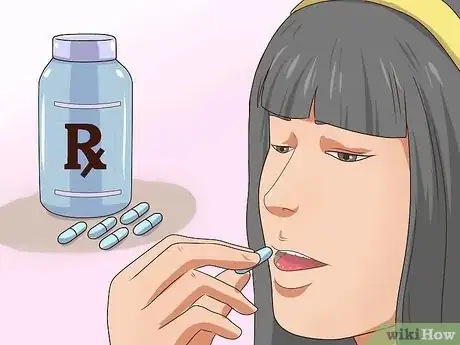
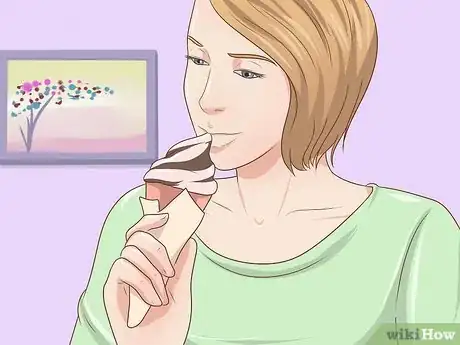
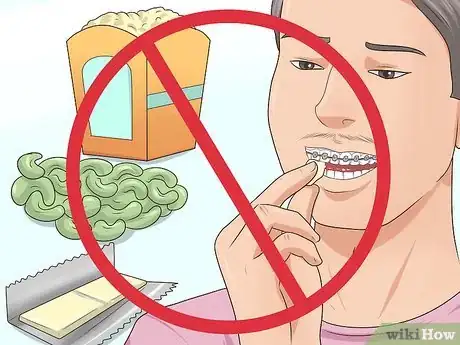
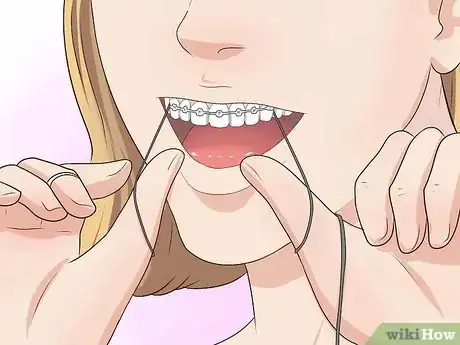
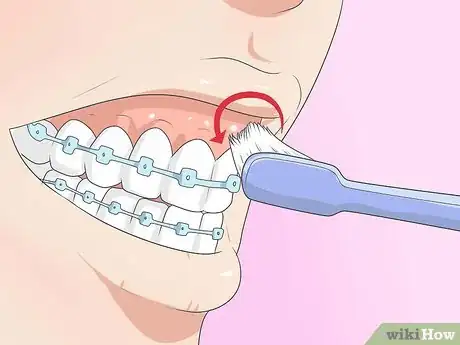
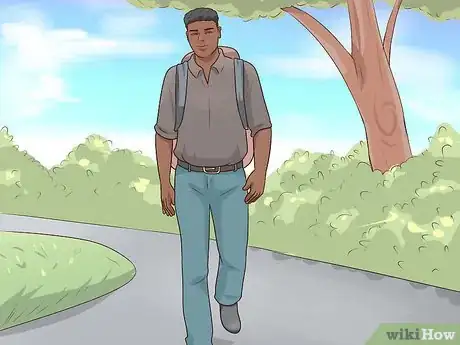
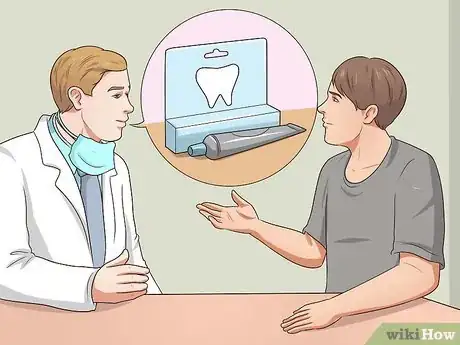
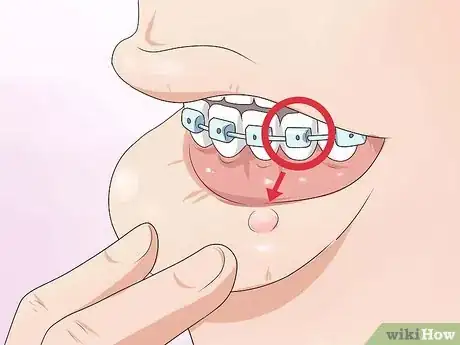
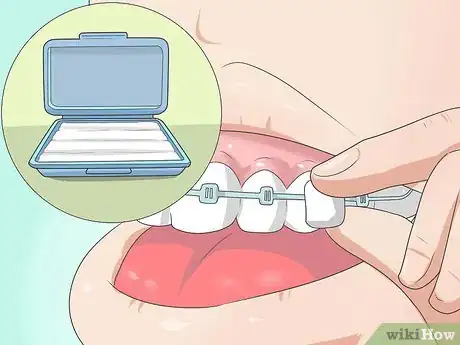
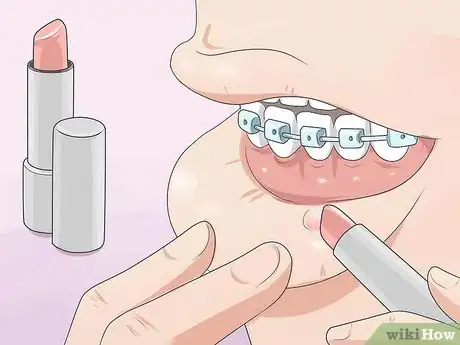
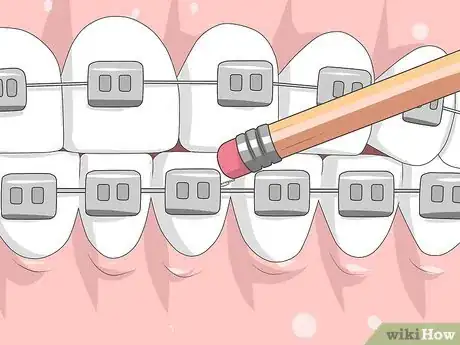
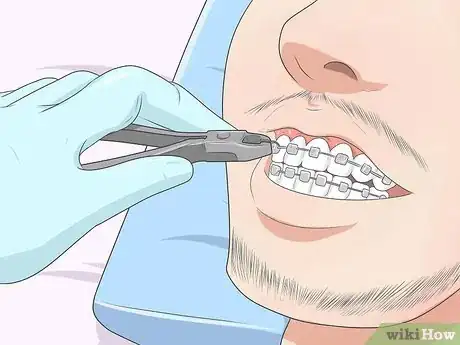
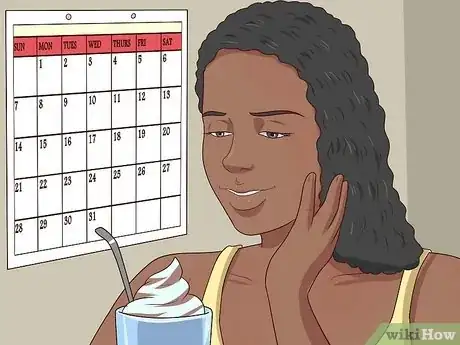
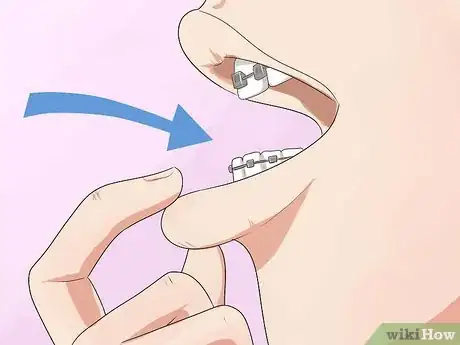
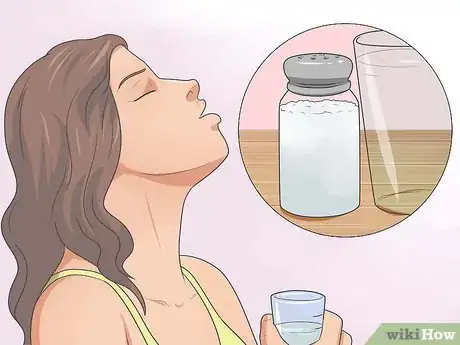
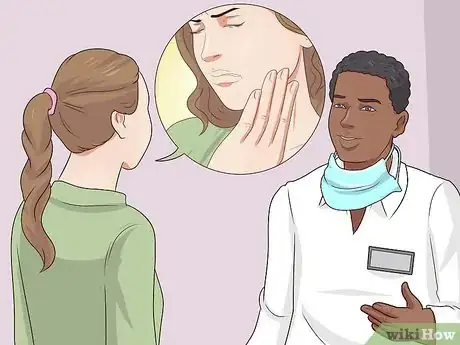
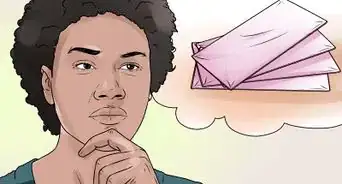

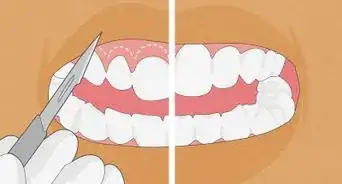
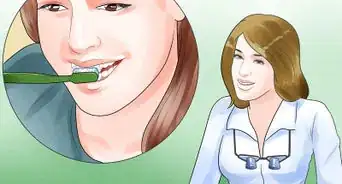
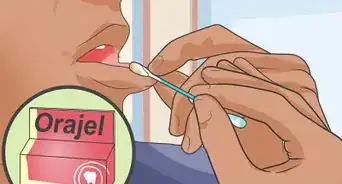

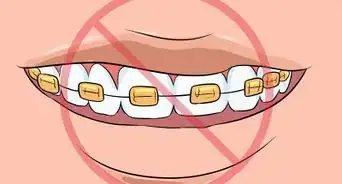
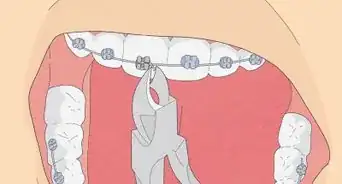
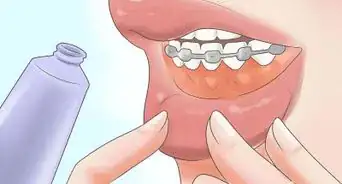
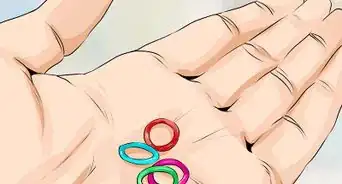
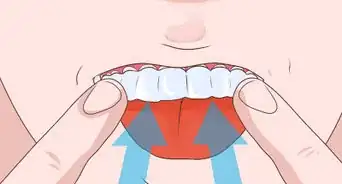
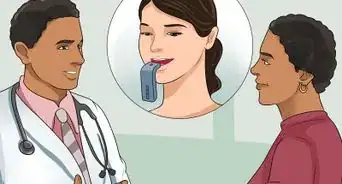
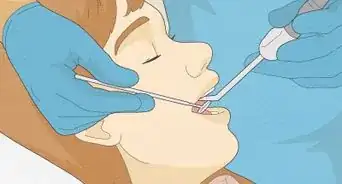
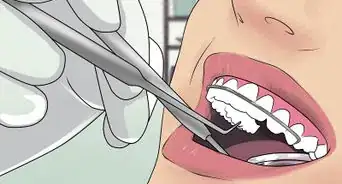











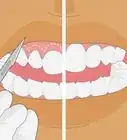
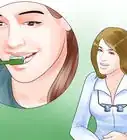



































Medical Disclaimer
The content of this article is not intended to be a substitute for professional medical advice, examination, diagnosis, or treatment. You should always contact your doctor or other qualified healthcare professional before starting, changing, or stopping any kind of health treatment.
Read More...